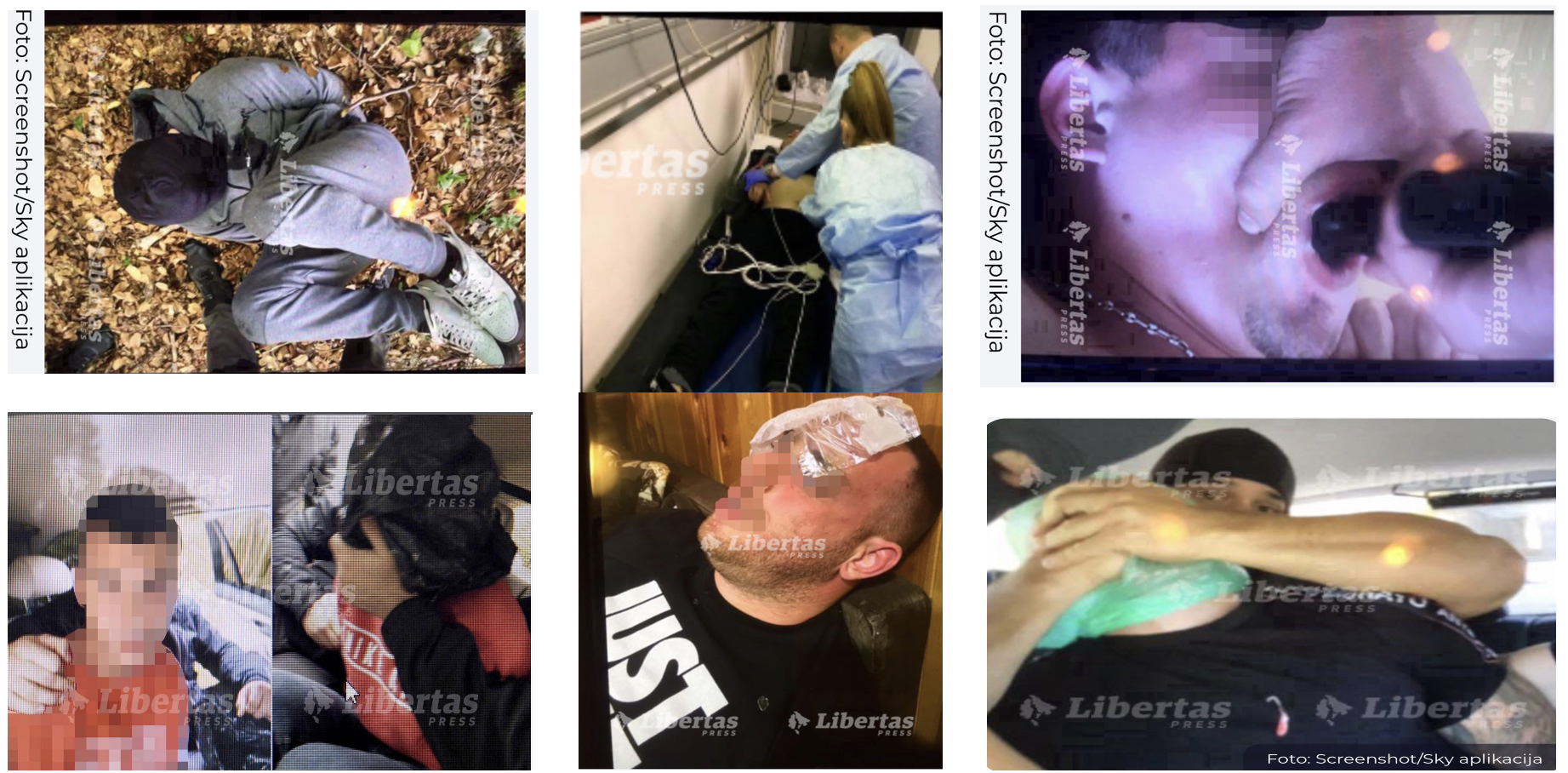
Complaint filed to Montenegrin Ombudsman against the Ministry of Health because of discrimination against LGBTQ persons
08/03/2023
THE STATE PROSECUTOR’S OFFICE WAS AWARE OF SERIOUS CASES OF POLICE TORTURE, BUT FAILED TO REACT ADEQUATELY
24/03/2023IMPUNITY FOR POLICE BRUTALITY IS UNDERMINING THE RULE OF LAW – STATEMENT ON THE OCCASION OF THE INTERNATIONAL DAY AGAINST POLICE BRUTALITY

Foto: Screenshot (YouTube); Prebijanje Milorada Mija Martinovića, oktobar 2015. godine
On the occasion of the International Day against Police Brutality, the Human Rights Action would like to point out that this phenomenon is still insufficiently suppressed in Montenegro because there has been no progress in the investigations of convincing reports of ill-treatment by the police. Such a situation does not meet the international standard of the prohibition of torture. We note that on 13 May Montenegro will have to inform the UN Committee against Torture whether it has made any progress regarding the investigation of reports of police torture.
To the best of HRA’s knowledge, in the last year there has been almost no progress in the 15 cases that were opened based on reports of extortion of testimony, about which the HRA informed the Committee in April 2022. Also, only one of the 21 reports of police officers exceeding their authority during the protest in Cetinje on 4 and 5 September 2022 has been processed to date. Only one of the two reports filed for exceeding police authority during the protest in Nikšić in 2021 is currently active, yet police officers have not been identified although more than two and a half years have passed since the event. In one case involving ill-treatment in Pljevlja, trial is pending against five police officers and commanders for aiding the perpetrator after the fact. As for the five reports of ill-treatment of citizens at the protest in Budva, four cases were archived, while police officers were charged in one case.
We are appealing once again to the State Prosecutor’s Office to take a more serious look at the cases involving extortion of testimony by the police, which indicate planned use of violence. Impunity for such cases is undermining the rule of law and trust in state authorities. We remind that a quarter of the persons in police detention interviewed by the European Committee for the Prevention of Torture (CPT) during their visit to Montenegro in June 2022 have complained of ill-treatment.
The United Nations Special Rapporteur on torture and other cruel, inhuman or degrading treatment or punishment, Alice Jill Edwards, concluded the following in the report she submitted to the UN Human Rights Council:
“National torture trials are not a threat to state authority. On the contrary, what threatens a government’s legitimacy is torturing persons, refusing to investigate and try the perpetrators, and allowing the torturers to go unpunished… A State’s legitimacy will be enhanced if they indeed defend truth and justice, rather than be seen as accomplices in the crime of torture”.
The Human Rights Action joins the above conclusion and provides her entire statement, which it will submit to the State Prosecutor’s Office of Montenegro today.
National prosecutions key to breaking cycle of impunity for torture: UN expert
GENEVA (14 March 2023) – States must pursue justice “at home” for crimes of torture, to achieve meaningful accountability, healing and reconciliation, the UN independent expert on torture said today.
In a report to the 52nd session of the Human Rights Council, the Special Rapporteur on torture and other cruel, inhuman, or degrading treatment or punishment, Alice Edwards, urged national authorities to take ownership of justice processes and operate as primary responders in cases of torture and other inhuman treatment.
“Despite the impressive growth in international criminal courts and tribunals and our collective commitment to those entities, their capacity to deal with the scale and scope of torture crimes being perpetrated today will never be enough,” Edwards said, emphasising the importance of national proceedings.
In her report, the Special Rapporteur pointed at a “glaring gap” between the promise and reality of the international prohibition of torture and recalled that every State has a duty to criminalise and investigate crimes of torture in national law, prosecute or extradite suspects, and sentence offenders with penalties that reflect the gravity of the offence.
“The national duty to investigate torture is alarmingly, universally, under-implemented,” she said.
The report highlighted the main obstacles hindering full and prompt investigations into allegations of torture, including institutional, regulatory, political, and practical challenges. The report also shared promising State practices to implement the duty to investigate torture, including documenting that at least 105 countries have adopted an explicit criminal offence of torture.
Despite this progress, Edwards said too few incidents of torture and other ill-treatment are officially reported, and – of those that are reported – cases regularly collapse or are withdrawn before a satisfactory conclusion.
“The difference between a crime of torture and an ordinary crime is that torture is first and foremost a crime committed or enabled by public officials. This power asymmetry between the accuser and the accused puts the alleged victim in a situation of particular precarity,” the Special Rapporteur said.
Edwards’ report documented how victims were often threatened and intimidated into withdrawing their allegations, risking vexatious counter-allegations and associated reputational damage, or distrusting the wheels of justice. “Complainants may still be in custody or under the control of the very authorities they are making allegations against,” she said. “The risks of retaliation and violence – including further torture or ‘disappearance’ – are real. The stakes are high.”
The expert called on States to establish independent investigative bodies that ensure that victims and survivors were ‘given voice’, fully empowered and could actively participate in any legal proceedings involving torture. She urged States to treat complainants with due respect, compassion and dignity and to offer appropriate rehabilitation and protection measures. “Early access to trauma counselling and other forms of rehabilitation are not only in the interests of complainant’s mental health, but they also help them become more reliable witnesses in court proceedings,” she said.
“National torture trials are not a threat to state authority. On the contrary, what threatens a government’s legitimacy is torturing persons, refusing to investigate and try the perpetrators, and allowing the torturers to go unpunished,” Edwards said. “A state’s legitimacy will be enhanced if they indeed defend truth and justice, rather than be seen as accomplices in the crime of torture.”







 English
English